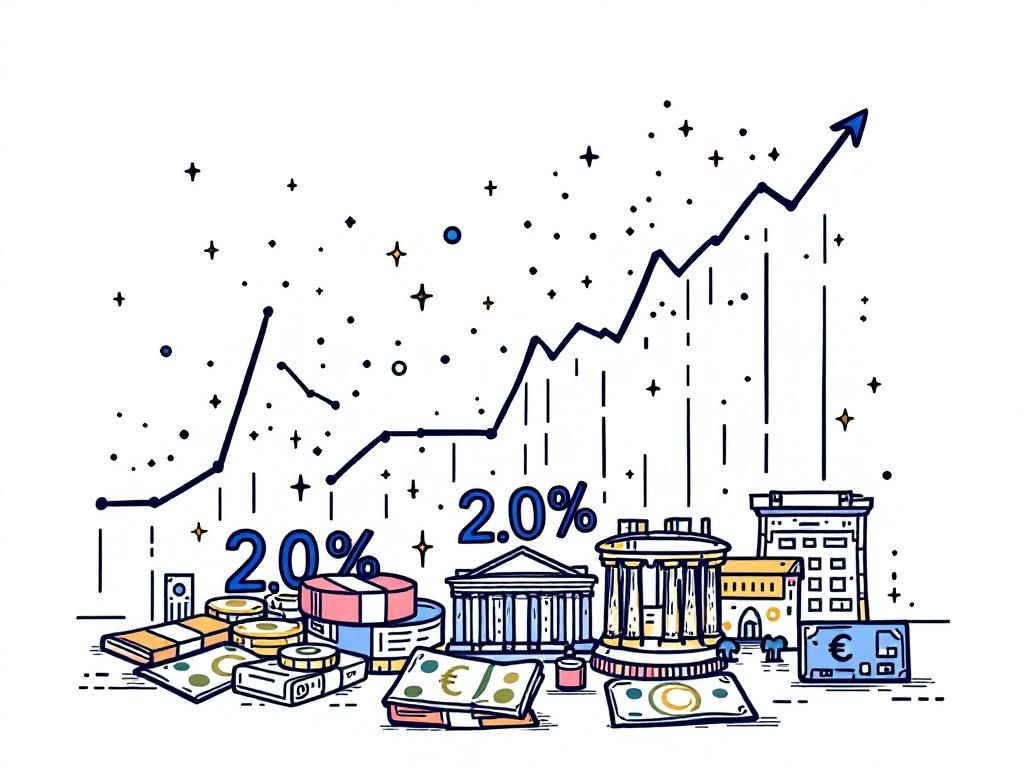Euro Zone Inflation Hits ECB Target Amid Rising Consumer Prices

Brussels, Tuesday, 1 July 2025.
Euro zone inflation aligned with ECB’s target reaching 2% in June 2025, led by a notable rise in services inflation to 3.3%, prompting talks of policy adjustments.
Rising Inflation and the ECB’s Response
Inflation in the euro zone has reached 2% in June 2025, aligning with the European Central Bank’s (ECB) target for the first time since the Covid-19 pandemic’s economic impacts started to taper. This figure marks an increase from 1.9% in May 2025, as reported by Eurostat. The services sector has notably contributed to this inflationary surge, with services inflation rising to 3.3% in June, up from 3.2% in May [1][2]. According to ECB Chief Economist Philip Lane, while achieving the 2% target is a significant milestone, the ECB will maintain a data-dependent approach, cautioning against overreacting to isolated inflationary episodes [1].
Economic Implications for the Euro Area
The attainment of the ECB’s inflation target is critical given the euro zone’s efforts to recover economically post-pandemic. Core inflation, which excludes volatile components such as energy and food, remained steady at 2.3%, signaling stability in underlying price pressures [1][3]. However, this stability comes amidst fluctuations in energy prices, which saw a reduction of 2.7% compared to earlier months, thereby softening overall inflationary pressures [4]. The ECB’s policy decisions, such as keeping interest rates steady with the possibility of cuts in September 2025, remain influenced by these inflation dynamics [1][5].
Global Economic Reactions
The euro zone’s inflation developments hold significant global economic ramifications. As Europe’s monetary policies could potentially shift, there is a ripple effect impacting global markets and investor sentiment. Analysts observe that continued vigilance is necessary due to persistent uncertainties such as potential trade tariffs and geopolitical tensions affecting oil prices [1]. These external factors could disrupt the current disinflation trend, necessitating proactive monetary strategies by the ECB [4][6].
Future Outlook
Looking forward, the euro zone’s inflation is projected to stabilize around 1.8% in 2026 and potentially rise slightly to 2.1% in 2027, driven by cautious economic policies and market conditions [3]. The ECB’s ongoing focus will likely remain on ensuring that inflationary trends align with economic recovery without inducing undue market volatility [1][6]. These strategies are pivotal as the euro zone navigates challenges posed by global economic dynamics and internal fiscal policies.